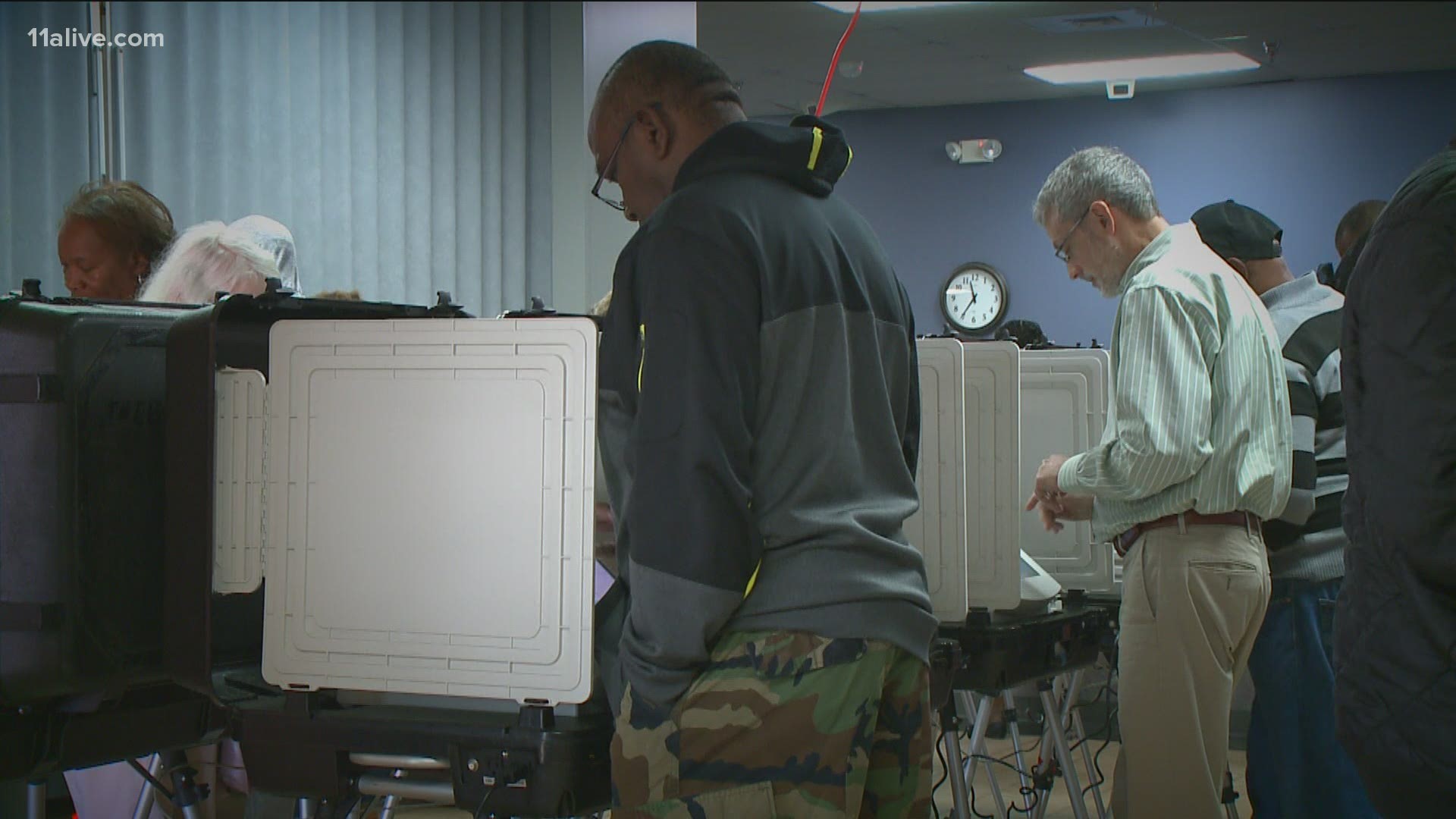ATLANTA — A federal lawsuit challenging Georgia’s new voting law contends that the measure criminalizes normal behavior in polling places—and can be used to intimidate voters.
The suit says it also prevents whistleblowers from calling out wrongdoing during recounts and other public election proceedings.
When Dominion voting systems delivered its new voting machines to Georgia counties in late 2019, many took note of the touch pad’s larger size, its bright picture, and its upright position – which seemed to make it easy for others in the room to see how votes were cast.
In February 2020 during a special election, voters in Irwin County told 11Alive News they could too-easily see the ballots cast by their neighbors inside precincts.
Though the state eventually provided visual barriers for the touchpads, election law required machines to be visible, so poll workers could prevent tampering.
The new law keeps the visibility requirement – but also makes it a felony for a voter to “intentionally” look at one of those visible voting screens elsewhere in a precinct. Attorney Bruce Brown, who filed the suit Monday, says any election worker could pick and choose, as a potential felon, any voter whose gaze falls someplace other than on their own ballot.
Republicans in the legislature acknowledged that the size and positioning of the touchpads made voter privacy difficult but, they contended, not impossible.
The suit says the new law not only criminalizes a voter’s gaze inside a precinct. It also prevents observers at a recount from reporting irregularities to anybody except the election supervisor.
And while last year’s recounts were mostly open to poll watchers, reporters and political activists – the suit contends the new election law would criminalize photographing much of that activity.
In addition, the suit
- Challenges the provision that allows the state election board to take over up to four county election boards if the board deems the local entities unfit;
- Challenges the requirement that voters merely provide identification numbers instead of signature matches to obtain absentee ballots;
- Contends that tighter deadlines to apply for absentee ballots restrict the availability of such ballots.

